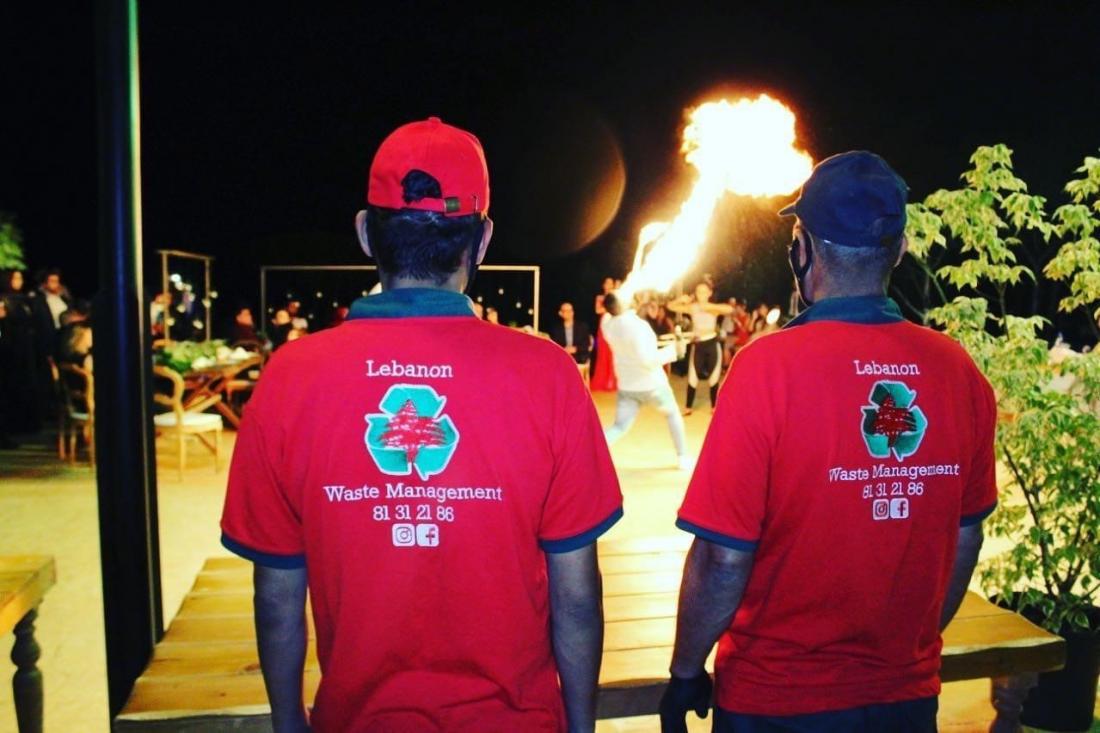GIMED: Treating dry solid waste in Lebanon, a successful solution launched by Lebanon Waste Management

Operating since 2019, Lebanon Waste Management (LWM) is a sorting facility that treats dry solid waste. LMW uses unrecyclable waste to make RE-tiles, which are new and customized bricks and tiles. “Solving one of the major problems we’re facing in this country was our goal for entering the GIMED program”, explains Pierre Baaklini, the founder of the start-up. In addition, they have created a product that helps boost the economy and create job opportunities.
“The experience with GIMED was really productive. The team and I met new and amazing people to share knowledge and experience. We learnt a lot and try to apply what we learnt”, shares Baaklini. RE-Tiles tackles unrecyclable waste such as bricks and tiles made of coloured glass, single-use plastic, chips and chocolate wrappers and face masks. What they are avoiding is the accumulation of tons of waste in Lebanese landfills.
So far, they have got 83% acceptance of their product, along with many opportunities in the Gulf Cooperation Council (GCC) countries. They have also met with investors with whom negotiations are taking place to have access to markets. “We have managed to have a prototype of the product and we’re soon launching the pilot project”, he shares.
Baaklini mentions that the economic crisis gave them a boost to work even harder during hard times. It showed them that no matter what they go through, saving the environment is their priority. “We couldn’t have done it without the teamwork, we also kept following up with our clients and were 100% honest and transparent with them”, he says. By the end of this program, they’re hoping to have gained as much information and knowledge as they could, to apply it in their work to develop and thrive in their country, and hopefully to expand to the world.
More than 100 tons recycled per month and up to 30.000 clients
After two years Lebanon Waste Management is operating, they have treated more than 100 tons of recyclables per month, currently working with 4 municipalities, 250 establishments and 30.000 clients. “The trainings we had with GIMED were definitely and added value to our team on time management level, financial planning and so on”, explains Pierre. Berytech, the official Lebanese partner from GIMED, was responsible for its selection and training.
In the past two years, the economic crisis, the lockdown, the inflation and other factors have hindered Lebanon progress. Nevertheless, they were able to surpass these problems and continue this journey. Winning the GIMED grant was a highlight during this journey, but also the trust that people gave, municipalities and also customers.
“Our bigger goal is more important, to save our environment and ensure a healthy planet for our future kids”, he says. From his own car, the environmental activist has been able to open a recycling facility and make a 100% Lebanese product with any imported raw material.
What’s GIMED?
GIMED is an EU-funded project under the ENI-CBC Med Programme aiming at supporting green entrepreneurs to better access finance and market in the Mediterranean.
The project provides training, coaching sessions, capacity building workshops, and sub-grants to consolidate green business creation and green business development.
Its duration is a total of 36 months with a total budget of 2.633.106,29€, with an EU contribution of 2.369.106,29€ (90% co-financing to project). GIMED works in five Mediterranean countries: Italy, Tunisia, Palestine, Lebanon and Egypt and its Lead Beneficiary, the Regional Activity Centre for Sustainable Consumption and Production (SCP/RAC) is based in Spain.







